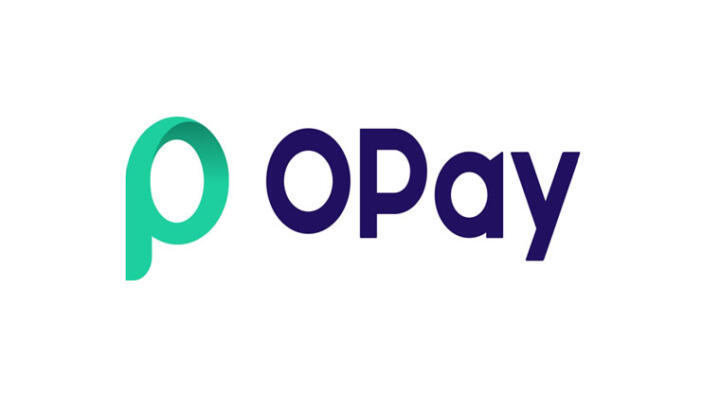Leading financial technology company OPay has announced a strategic partnership with the University of Calabar (UniCal) to establish a state-of-the-art Cybersecurity Innovation Laboratory, aimed at bolstering Nigeria’s defense against cyber threats and fostering digital resilience among students and professionals.
The collaboration, unveiled during a joint press briefing in Calabar, is designed to strengthen cybersecurity education, research, and practical skill development within Nigeria’s growing digital ecosystem. The lab will serve as a training and research hub where students, lecturers, and cybersecurity experts can collaborate on innovative solutions to tackle the country’s rising cybercrime challenges.

Speaking during the event, Mr. Dauda Gotring, OPay’s Director of Public Affairs, stated that the partnership reflects the company’s commitment to safeguarding the digital economy and investing in Nigeria’s technological future. “As a leading fintech serving millions of Nigerians daily, cybersecurity is not just a necessity—it’s a duty. Our partnership with the University of Calabar demonstrates our resolve to strengthen Nigeria’s cybersecurity infrastructure from the ground up,” Gotring said.
He emphasized that the initiative will equip students with hands-on experience in cybersecurity operations, including ethical hacking, cyber forensics, artificial intelligence in security systems, and data protection techniques. The lab will also focus on conducting research into emerging digital threats targeting financial systems, e-commerce, and public institutions.
In his remarks, the Vice Chancellor of the University of Calabar, Prof. Florence Obi, applauded OPay’s gesture, describing the collaboration as a landmark development in the institution’s pursuit of technological excellence. “We are delighted that OPay has chosen UniCal as its partner in this visionary project. This lab will not only benefit our students but also contribute to Nigeria’s broader efforts in building a secure digital environment,” Prof. Obi noted.
She added that the facility will be fully equipped with advanced cybersecurity simulation tools, digital forensic equipment, and interactive software for both teaching and research purposes. The lab will also serve as a center for certification training, where students can earn globally recognized credentials in cybersecurity and information assurance.
According to OPay, the project is part of its corporate social responsibility (CSR) initiatives aimed at developing talent pipelines for Nigeria’s technology sector. The company disclosed that the cybersecurity lab would operate in collaboration with local and international partners, including cybersecurity firms and technology experts who will support curriculum design and mentorship programs.
Nigeria, like many developing countries, has faced a surge in cyberattacks in recent years, targeting financial institutions, government agencies, and businesses. The National Information Technology Development Agency (NITDA) estimates that the country loses over $500 million annually to cyber-related crimes, underscoring the urgency for capacity building and enhanced security frameworks.
Cybersecurity professionals have hailed the OPay-UniCal partnership as a proactive step toward closing Nigeria’s digital skills gap. Dr. Chris Udo, a cybersecurity analyst and lecturer at the university, described it as “a timely and strategic investment in human capital that aligns with Nigeria’s ambition to become a digital powerhouse.”
He said the initiative would help build a generation of security-conscious innovators who can protect critical digital infrastructure. “Cyber threats evolve daily, and this lab will provide a platform for young Nigerians to learn, experiment, and innovate solutions tailored to our local context,” Udo added.
In addition to academic use, the cybersecurity lab will collaborate with the National Cybersecurity Centre, NITDA, and the Central Bank of Nigeria (CBN) on research and policy advisory roles, ensuring the facility contributes to national efforts in combating financial and digital crimes.
OPay, which has become one of Nigeria’s leading fintech companies with millions of active users, emphasized that cybersecurity remains a cornerstone of its operations. The company’s recent expansion into new financial products—such as lending, savings, and insurance—has made strengthening its digital defense systems even more critical.
Gotring reiterated OPay’s long-term goal: “We are not just providing financial solutions; we are building trust in digital transactions. This cybersecurity innovation lab is an investment in that trust.”
Construction of the lab is set to begin in early 2026, with the first phase focusing on infrastructure development, equipment installation, and training of the pioneer cohort of cybersecurity instructors. Once completed, the lab will host workshops, hackathons, and innovation challenges to promote youth participation in digital security and technology entrepreneurship.
The OPay-UniCal partnership has been widely praised by both the tech community and education stakeholders as a model for private-sector engagement in academia. By combining financial innovation with educational development, the initiative is expected to produce a new generation of cybersecurity experts capable of defending Nigeria’s digital future.
Support InfoStride News' Credible Journalism: Only credible journalism can guarantee a fair, accountable and transparent society, including democracy and government. It involves a lot of efforts and money. We need your support. Click here to Donate
